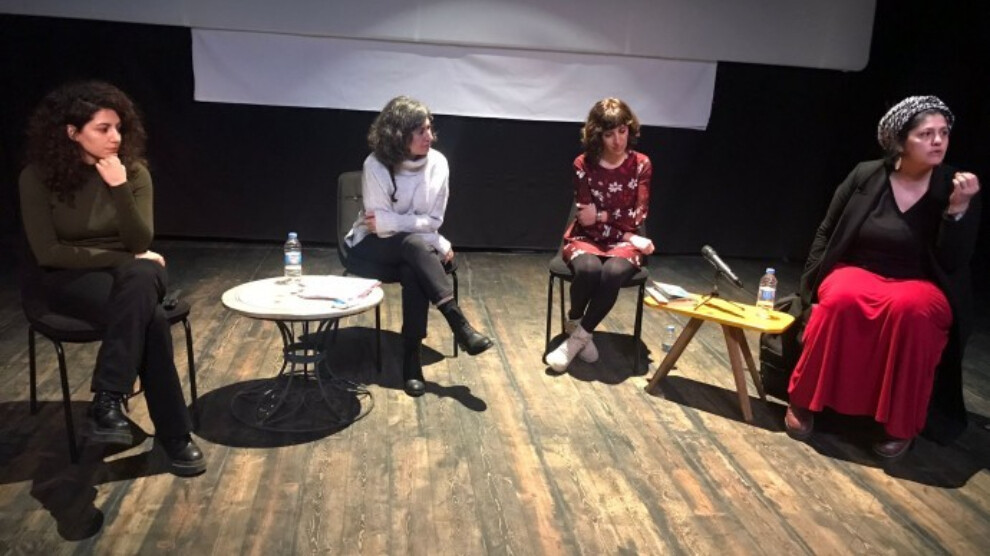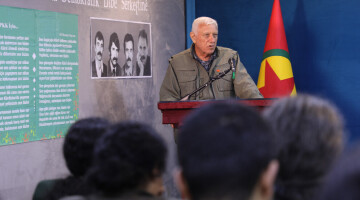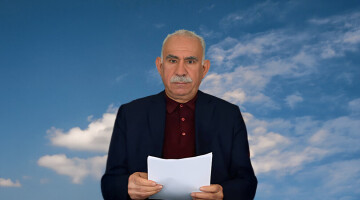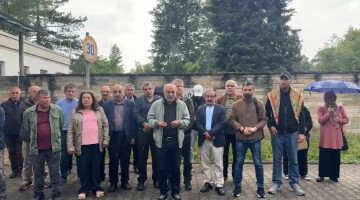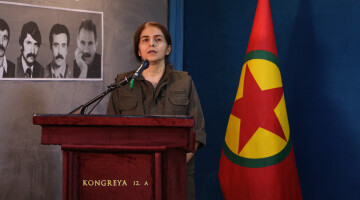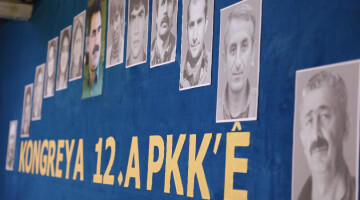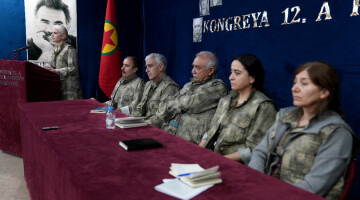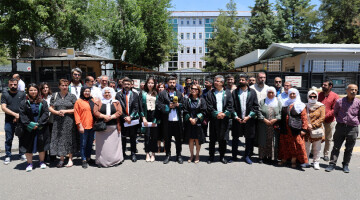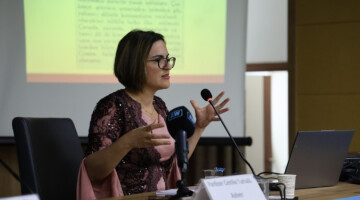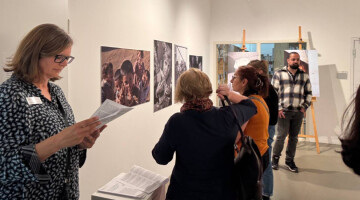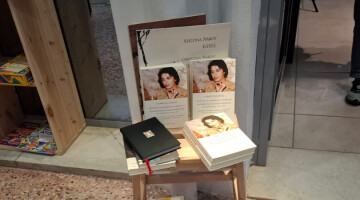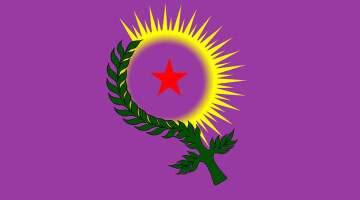Women directors met in Diyarbakır as part of the “Purple Meridians” project, funded by Eurimages and organised by Rosa Women's Association, Ovni Barcelona and Streamthings Italy. 18 films shot by the women directors who took part in the project will be shown during the two-day event hosted by the Mordem Art Center.
The program started with a panel titled “The Role of Women in Cinema” on the first day. The panel was moderated by Ruken Ergüneş, from the Rosa Women's Association Board of Directors, with documentary film directors Elif Yiğit, Güliz Sağlam and Ahu Öztürk as guests.
Speaking before the panel, the President of Rosa Women's Association, Adalet Kaya, said that it is very important to have shared the same feelings with different women from different parts of the world and added: "We are very happy to be a part of this project."
Ruken Ergüneş spoke about the Purple Meridians project, thanked the women who contributed to the project.
In the panel, women's representation in cinema production, women's organization and solidarity in cinema, documentary cinema and women's experiences in film production were discussed through the eyes of a new generation of female filmmakers.
Elif Yiğit: Kurdish women have to fight twice
Director Elif Yiğit, one of the speakers, explained that she has been in the cinema industry for 6 years and has been dealing with documentary films for the last two years. Expressing that she was very proud to be involved in this project, Yiğit said: “Cinema is a very masculine field. Being a Kurdish woman in cinema requires to fight twice. I thought that cinema could express us in the society we live in. The way men portray women in movies is always the same. I set out in cinema with the slogan that women best reflect women against the portrait by men who describe me in the cinema."
Director Güliz Sağlam, who focused on the problems that women face especially due to the political climate, said: "Women are on the streets, as part of social opposition. This is a struggle for existence, for our rights. We will continue to fight and we should not take a step back in any way."
We are fighting a collective struggle
Stating that she started to make cinema in the 90s, Sağlam said that there were very few women in cinema at that time, and that the sexist division of labor has only now been broken. Sağlam said: "More women are working in cinema nowadays and we women are fighting a collective struggle for this. Women's struggle also comes out of this collective."
'We must write our own history'
Stating that she is a feminist activist as well as a director, Sağlam added: "I think we should write our own history. We came together with a group of women filmmakers in 2018, and we talked about how we can organize each other against sexual harassment and violence. Women in front of and behind the camera came together to discuss sexual violence. Women's problems are one; femicide is political. This is a systemic problem and is directly related to the patriarchal structure. Women who came together for solidarity developed a struggle with violence by following the cases during the disclosure processes. We're trying to reflect this."
Öztürk: We should write brave things
Director Ahu Öztürk explained that she started working in cinema in the 90s at the Mesopotamia Cultural Center (MKM).
Emphasizing the experiences of women in the industry, Öztürk continued: "As a Kurdish woman who comes from a political environment, I encountered different things in cinema. There are many problem areas for female directors; when you get pregnant, for example, it is an obstacle."
Öztürk added: "You have to write and shoot something that is worth your attempt. What you say should include courage. The people whose characters you build should be able to stand out from the male point of view, and this can be done from a female point of view. Yes, cinema is an area that has many disadvantages for us women, but on the other hand, it has very special places and these special places are captured by women. We have been watching very good films in the last 10 years of cinema. Because women capture every detail very well."
Screening continues today
The panel on Saturday ended with a question-and-answer session, and the movie screening began. After each movie, short interviews were held with the directors. The screening of the films will continue today.

